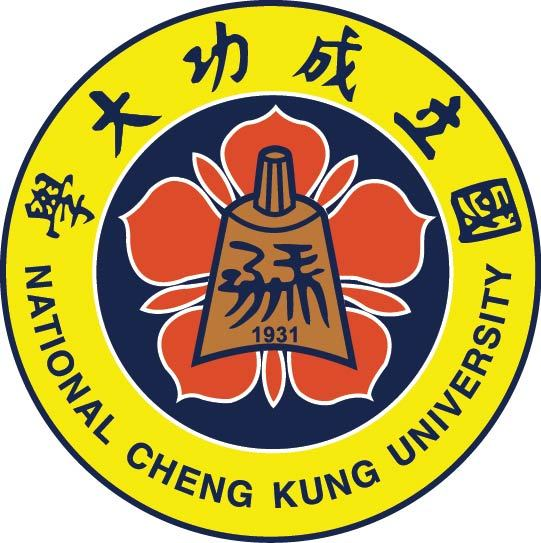Global Change Geobiology Carbon Lab
Research Field
Prof. Liang’s research focuses on biogeochemical processes that control the cycling, longevity, and environmental functions of organic carbon in soils and sediments. The goal is to gain a mechanistic understanding of organic carbon degradation and stabilization, and potential in nutrient retention, carbon sequestration, and environmental remediation.
Another line of Liang’s research is to understand the microbially-regulated formation of stromatolites (the earliest microfossil on Earth). Liang’s research on cyanobacteria and lithified lab-culture has linked Kenting modern stromatolite discovered in Taiwan to the ancient fossilized stromatolites. Studying the causal interplay of biological and environmental factors, the microbial community and activities, and the geochemical signatures, using stable isotopes (13C, 15N, 11B, 88Sr, 87Sr, 86Sr etc.), Nano-SIMS, and molecular biology tools, will help elucidate the formation processes and mechanism of modern and ancient stromatolites.
Recent research has unveiled the sub-micron-scale chemistry of black carbon (biochar) and the in-situ interaction with short-range-order minerals and nanomineral particles (Weng et al., 2018; Weng et al., 2020).
Prof. Liang works on converting kitchen bone waste (hydroxyapatite) into valorized materials (bone char) by thermal alteration and synthesis of nanominerals, and application to remediation, removal of heavy metals, and degradation of PFOA (Biswas et al., 2021; Biswas et al., 2022; Biswas et al., 2023).
Liang’s lab often explores interdisciplinary research techniques on biogeochemical processes by using various synchrotron-based spectroscopic and spectrometric techniques (including TXM, NEXAFS, FTIR, XRD, XND, XAS etc).
Prof. Liang is an experienced user at National Synchrotron Radiation Research Center (NSRRC) in Taiwan.
- Study of Boron and Strontium Isotopes in Modern Stromatolites from Kenting, Taiwan
- Cultivation and Sequencing of Cyanobacteria in Modern Stromatolites from Kenting
- Research on Natural Metabolites in Modern Stromatolites from Kenting
- Photocatalytic Degradation of Persistent Fluorinated Pollutant PFOA Using Natural Nano Iron Oxides
- From Dinosaurs to Birds: Morphological 3D Tomographic Analysis of Bone Osteocyte Cells
- Application of Thermally Modified Bone Char Hydroxyapatite for the Removal of Heavy Metal Contaminants
- EMI Teaching Excellence, NCKU (2022)
- Taiwan Ministry of Science and Technology, Talent Award (2013-2015)
- Academia Sinica Postdoctoral Scholar Award (2010-2012)
- Small Grant, IGERT-NSF, Cornell University (2006)
Soil Biogeochemistry
Ph.D 2006-2008 Cornell University
MS 2003-2006 Cornell University
1 Vacancy
Job Description
Project 1: Study of Strontium Isotopes in Modern Stromatolites from Kenting
Preferred Intern Education Level
- Background in geochemistry, chemistry, environmental science, or a related field.
- Enrolled in or recently graduated from a relevant undergraduate or graduate program.
Skill sets or Qualities
- Strong motivation and interest in scientific research and willingness to learn new laboratory techniques.
- Ability to work independently and as part of a team.
- Good communication skills in English.
1 Vacancy
Job Description
Project 2: Research on Natural Metabolites in Modern Stromatolites from Kenting
Preferred Intern Education Level
- Background in geochemistry, chemistry, environmental science, biology or a related field.
- Enrolled in or recently graduated from a relevant undergraduate or graduate program.
Skill sets or Qualities
- Strong motivation and interest in scientific research and willingness to learn new laboratory techniques.
- Ability to work independently and as part of a team.
- Good communication skills in English.
1 Vacancy
Job Description
Project 4: From Dinosaurs to Birds: Morphological 3D Tomographic Analysis of Bone Osteocyte Cells
Preferred Intern Education Level
- Background in Earth, Environmental science, Chemistry, Physics, Maths, Computer sciences or a related field.
- Enrolled in or recently graduated from a relevant undergraduate or graduate program.
Skill sets or Qualities
- Strong motivation and interest in scientific research and willingness to learn new software and coding.
- Ability to work independently and as part of a team.
- Good communication skills in English.
1 Vacancy
Job Description
Project 4: Photocatalytic Degradation of Persistent Fluorinated Pollutant PFOA Using Natural Nano Iron Oxides
Preferred Intern Education Level
- Background in geochemistry, chemistry, environmental science, or a related field.
- Enrolled in or recently graduated from a relevant undergraduate or graduate program.
Skill sets or Qualities
- Strong motivation and interest in scientific research and willingness to learn new laboratory techniques.
- Ability to work independently and as part of a team.
- Good communication skills in English.
